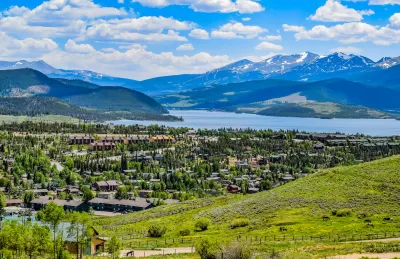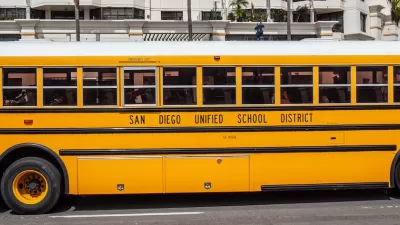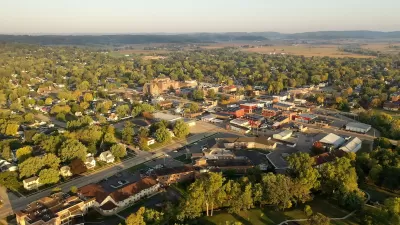Rising housing costs in rural counties is undermining the U.S. Forest Service's ability to recruit employees.

According to a recent article from the National Association of Counties (NAOC), “The U.S. Forest Service is having trouble recruiting employees because of the housing shortage in rural counties, so much that it’s the most pressing issue applicants ask about while being recruited.” In some areas, the nearest affordable units available would require up to a one- or two-hour commute.
Though the Forest service owns more than 3,000 housing units, budget cuts and the agency’s $360 million-maintenance shortfall mean many of those units are deteriorating, reports NACO senior writer Charlie Ban. Further complicating the issue is the fact that the federal government cannot subsidize housing or provide financial incentives to employees for housing.
As a result, Ban writes, the Forest Service has been forced to get a little creative. In Summit County, Colorado, the agency formed a public-private partnership with the county and the town of Dillon to have a private developer construct and manage a 162-unit housing facility with a certain number of beds and units reserved for seasonal and permanent Forest Service Employees.
The catch? It's unclear if this solution will be replicable elsewhere. “The agreement, the first of its kind, was reached using a leasing authority the agency hopes to include in the next farm bill to allow for similar developments — the leasing authority for the 2018 farm bill expired days after the Dillon agreement was signed,” the NACO article reports.
FULL STORY: Housing shortage bedevils public lands counties, employers, feds

Planetizen Federal Action Tracker
A weekly monitor of how Trump’s orders and actions are impacting planners and planning in America.

Congressman Proposes Bill to Rename DC Metro “Trump Train”
The Make Autorail Great Again Act would withhold federal funding to the system until the Washington Metropolitan Area Transit Authority (WMATA), rebrands as the Washington Metropolitan Authority for Greater Access (WMAGA).

The Simple Legislative Tool Transforming Vacant Downtowns
In California, Michigan and Georgia, an easy win is bringing dollars — and delight — back to city centers.

The States Losing Rural Delivery Rooms at an Alarming Pace
In some states, as few as 9% of rural hospitals still deliver babies. As a result, rising pre-term births, no adequate pre-term care and harrowing close calls are a growing reality.

The Small South Asian Republic Going all in on EVs
Thanks to one simple policy change less than five years ago, 65% of new cars in this Himalayan country are now electric.

DC Backpedals on Bike Lane Protection, Swaps Barriers for Paint
Citing aesthetic concerns, the city is removing the concrete barriers and flexposts that once separated Arizona Avenue cyclists from motor vehicles.
Urban Design for Planners 1: Software Tools
This six-course series explores essential urban design concepts using open source software and equips planners with the tools they need to participate fully in the urban design process.
Planning for Universal Design
Learn the tools for implementing Universal Design in planning regulations.
Smith Gee Studio
City of Charlotte
City of Camden Redevelopment Agency
City of Astoria
Transportation Research & Education Center (TREC) at Portland State University
US High Speed Rail Association
City of Camden Redevelopment Agency
Municipality of Princeton (NJ)





























